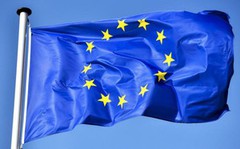More than 10 EU countries call on the EC to explain the suspension of Ukrainian grain imports for five EU countries

After 5 EU member states (Poland, Slovakia, Hungary, Romania, Bulgaria) had requested an extension of the ban on the import of Ukrainian grain until the end of 2023, the other 12 member states appealed to the European Commission with their appeal, in which they indicate their displeasure in this situation and require explanations.
Agriculture ministers from 12 EU countries have raised “serious concerns” over a recent compromise reached by Brussels and five Eastern members of the bloc to restrict imports of Ukrainian agricultural products.
In late April, Poland, Hungary, Slovakia and Bulgaria banned grain imports from the war-struck nation. The European Commission responded with a proposal to deliver €100 million in aid for farmers in those countries and Romania, as well as a temporary ban on Ukrainian imports to them unless for transit to other nations.
No sooner had the deal been struck than it started to unravel. Poland led calls to distribute the glut of grain in the form of humanitarian aid — but officials responded that it wasn’t fit for human consumption.
In a strongly worded letter sent to the European Commission and seen by POLITICO's Brussels Playbook, the 12 agriculture ministers said the deal “undermines the integrity of the EU internal market.”
Ministers from France, Germany, the Netherlands, Ireland, Greece, Austria, Belgium, Croatia, Luxembourg, Estonia, Denmark and Slovenia called for urgent “clarification” of the arrangement, which they said the Commission made “without consulting member states.”
Their concerns focus on how the deal relates to the “rules and operation” of the EU’s internal market and the EU’s obligations toward Ukraine and Kyiv’s association agreement with the bloc. The letter calls for further discussion with countries to explain how and why the €100 million was granted.
“As in all dimensions of our support, it is imperative to ensure that the European Union is united and that our differences do not play into Russia’s hands, especially on this particular issue, where Russia is threatening not to extend the Black Sea Grain Initiative,” the ministers said in the letter.
“We urge the Commission to return to a transparent procedure along established rules within the functioning of the EU and its member states,” the letter added.
Several EU agriculture ministers last month criticized the unilateral bans imposed by Poland and other countries on Ukrainian imports. During a ministerial meeting in Luxembourg on April 25, Finland’s Antti Kurvinen said the restrictions were “causing harm” to the bloc’s united efforts to help Ukraine.
France’s Marc Fesneau called out Poland and the others over double standards in supporting the bloc’s eastern neighbor when it came to supplying weapons and imposing sanctions on Russia, but turning their backs when it came to bearing some of the brunt.
“You can’t call for solidarity and take unilateral decisions at the same time,” Fesneau said.
This week’s letter is seen as another signal that the rest of the EU was becoming fed up.
“This is also clearly intended to send a signal to Poland and its band of brothers that the rest of Europe has had enough of their double standards when it comes to solidarity with Ukraine. You can’t have your grain and eat it,” an EU diplomat wrote to POLITICO.
IC UAC according to POLITICO
- 1675 reads





